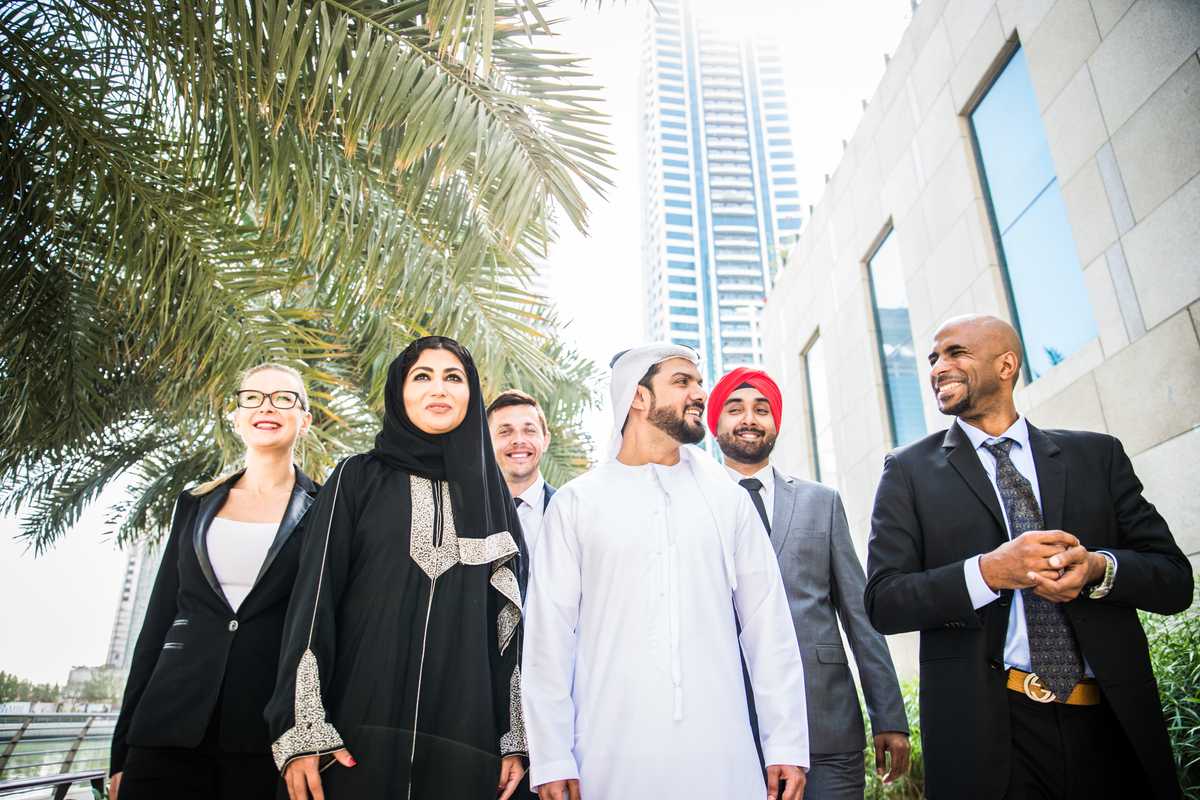DIFC sees record growth in H1 2025 as global finance firms flock to Dubai
DIFC hit a record high, adding 1,081 new companies in H1 2025, driven by strong growth in finance, fintech, and hedge funds.
Dubai Desk
The Dubai Desk reports on major developments across the UAE, covering news, culture, business, and social trends shaping the region.

Dubai’s global appeal is rising, with regulatory reforms, real estate expansion, and wealth inflows reinforcing its status as a top financial hub.
Envato
Dubai International Financial Centre (DIFC) registered a record-breaking first half in 2025, driven by the emirate’s robust financial sector and growing global appeal.
The DIFC added 1,081 new companies between January and June—up nearly 33% year on year, marking the highest-ever six-month increase. This increased the total number of active registered companies to 7,700, representing a 25% annual rise, while the centre’s workforce expanded by 9% to 47,901 employees.
Among the global names joining DIFC’s ranks were ABK Capital, Avaloq, Baron Capital, Bluecrest Capital, Cambridge Associates, China International Capital Corporation, dLocal, Manulife, National Bank of Kuwait, Pimco, and TransAmerica Life Bermuda, among others.
Regulated financial services entities rose 17% to 980, with new financial service authorisations up 28% to 78. The banking and capital markets cluster grew by 17% to 289 firms.
Meanwhile, DIFC’s fintech and innovation ecosystem continued to flourish, growing 28% to 1,388 companies, mirroring the 28% growth in non-financial entities overall, which reached 6,335.
Sheikh Maktoum bin Mohammed, First Deputy Ruler of Dubai and president of DIFC, described the performance as a "direct reflection" of the emirate’s vision to be among the world’s leading financial centres, and said in a statement via the Dubai Media Office:
Dubai has entered a new and greater phase of growth, and these results highlight the competitiveness, attractiveness, and global confidence it enjoys,
The wealth and asset management cluster, the largest in the region, also expanded with 70 new companies, up 19% year on year. According to Henley & Partners, Dubai now boasts the highest concentration of private wealth in any Middle Eastern city.
Hedge funds surged, rising 72% over the past year to 85, while more than 10,000 funds are now managed or marketed from the DIFC. Sheikh Maktoum added
We firmly believe the future holds even more opportunities, and we will continue to strengthen the DIFC’s capabilities and its ecosystems that foster innovation, agility and business growth,
DIFC’s momentum aligns with Dubai’s Economic Agenda (D33), which aims to double the city’s economy to Dh32 trillion within a decade and cement its status among the top three global cities.
The UAE economy grew 4% in 2024, reaching Dh1.776 trillion, with the non-oil sector—particularly financial and insurance services—expanding 7%, according to the Ministry of Finance. Dubai’s economy grew 3.1% in the first nine months of 2024 to Dh339.4 billion, bolstered by gains in finance and other key sectors.
Last year, DIFC also recorded its best-ever annual performance, adding a record number of firms and growing employment by 10% to over 46,000.
Essa Kazim, Governor of DIFC, noted:
Our consistent performance across all key sectors and rising global standing are evidence of our commitment to supporting innovation, attracting global capital and reinforcing Dubai’s status as one of the world’s most competitive and diversified economies.
On the real estate front, DIFC is scaling up development. The launch of DIFC Heights—fully sold out in just three days—signaled surging demand for premium residential space. Over 1.6 million sq. ft. of commercial space is under development, with occupancy beginning in Q1 2026.
In a sign of investor confidence, Abu Dhabi’s Aldar Properties acquired a 40-storey DIFC tower for Dh2.3 billion in December.
On the regulatory front, DIFC proposed new Variable Capital Company Regulations to enhance investment structuring and asset management. Updates to its Law of Security, Insolvency Law, and Employment Law were also introduced to ensure alignment with global standards.







Comments
See what people are discussing